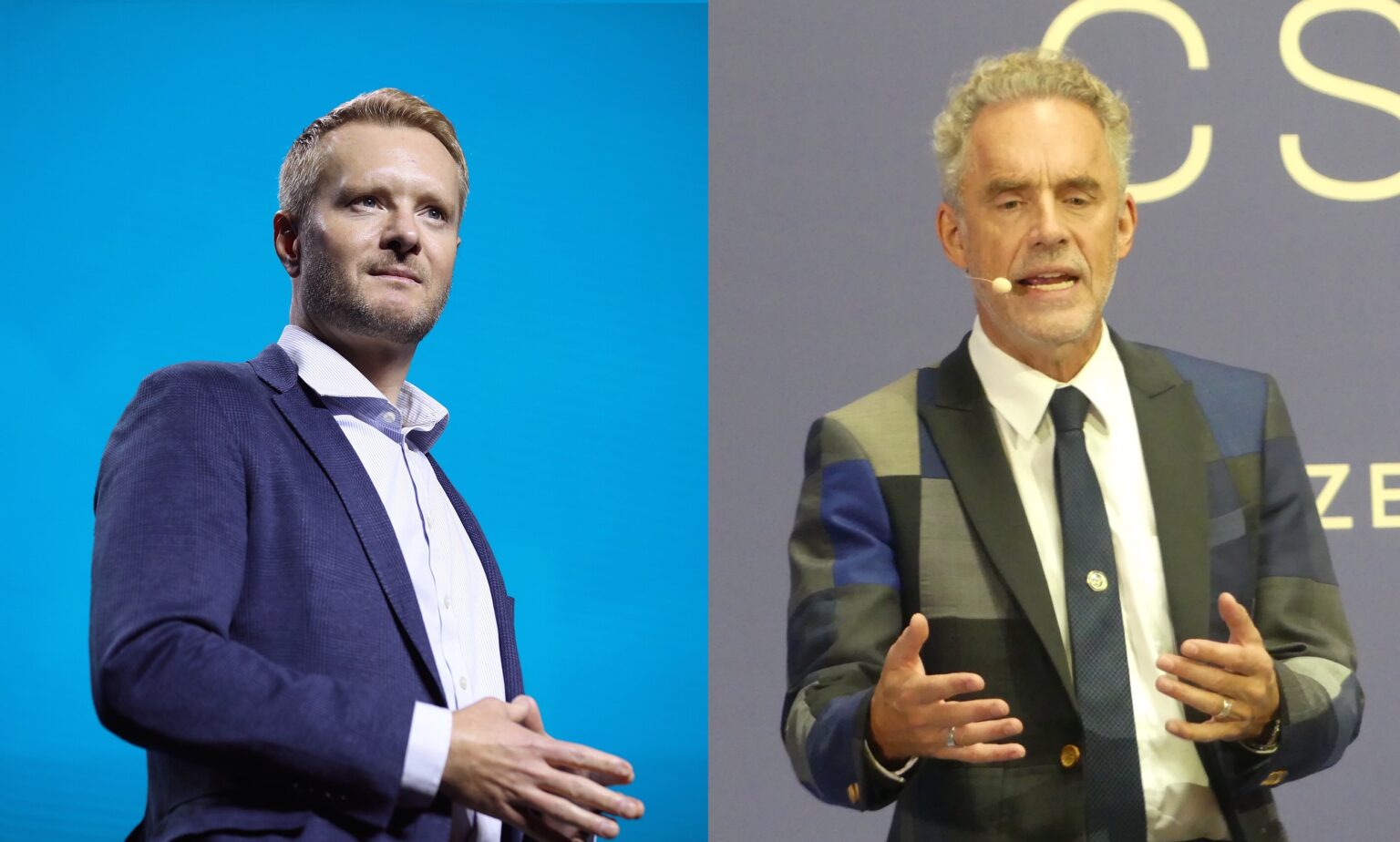The killers who committed horrific mass shootings in Norway, New Zealand and Texas are examples of “extreme environmentalists” who want to reduce the Earth’s population to conserve resources, according to a class taught at Peterson Academy, the new online school from conservative influencer Jordan Peterson.
These mass shooters are “people who don’t rely on persuasion, or government action, but instead take matters into their own hands and start to kill the members of the human race at least in part for the sake of the planet’s environment,” claims instructor Marian Tupy in a lecture about the history of environmentalism.
Tupy’s lecture — which is entitled “The enemies of progress from the romantics to the extreme environmentalists” — is premised on the argument that limiting the planet’s population to lessen ecological impacts and reduce greenhouse gas emissions is a central concern of the mainstream environmental movement.
That couldn’t be further from the truth, according to Rachel Cleetus, policy director for the climate and energy program at the Union of Concerned Scientists, an environmental non-profit founded in the 1970s at the Massachusetts Institute of Technology. Her group has published a report pushing back on the idea that too many humans are the reason for climate change and ecosystem collapse.
“The focus on overpopulation is a complete misdirection,” Cleetus told DeSmog, arguing that it’s part of an effort to deflect attention from the actual challenges facing our planet, which include a dangerous global reliance on climate-altering oil, gas and coal.
“The majority of people in the climate movement completely understand and have identified fossil fuels as the core problem, and a transition away from fossil fuels as the core solution to addressing climate change,” Cleetus said.
Neither Tupy nor Jordan Peterson responded to questions about the lecture.
Rife with Climate Crisis Deniers
Peterson Academy, which officially launched in September, is an unaccredited online school that charges people $499 to access lectures on topics including philosophy, nutrition and world history. There are no grades, but students can choose to take short quizzes that are marked by an artificial intelligence program.
The school was reportedly started with $3 million in seed funding from Peterson and his daughter Mikhaila. It belongs to a trend of rightwing influencers and funders using the language and aesthetics of higher education to market anti-progressive ideas, which also includes Peterson’s ally Dennis Prager, who started the conservative media outlet PragerU.
Though Peterson Academy’s tagline is “education, devoid of ideology,” Peterson himself is strongly conservative and opposed to climate action — as are many of the instructors, who pre-tape the lectures shown to students. When DeSmog analyzed a list of announced instructors earlier this year it found more than a dozen had previously made statements denying the existence of a climate emergency or dismissing solutions to the crisis.
That includes Tupy, who is currently a senior fellow at The Cato Institute, a libertarian think tank founded in the late 1970s by the oil and gas billionaire Charles Koch* which has a long record of disputing the science of climate change. Tupy teaches a Peterson Academy course along with Gale Pooley, who is also associated with Cato, on “the economics of human flourishing.”
Tupy states in his lecture that there is a “rising strand of anti-humanism in the environmentalist movement, that in its mildest form advocates in favor of anti-natalism, meaning having fewer children, and in its most destructive form, flirts with genocide.”
He then provides alleged examples: Anders Behring Breivik who killed 77 people in Norway; Patrick Crusius who killed 23 people in El Paso, Texas; Brenton Tarrant who killed 51 people in Christchurch, New Zealand. All three wrote hate-filled manifestos containing racist theories blaming environmental declines on immigrants and minorities.
Tupy in his talk cited Ted Kaczynski, known as the Unabomber, who killed three people with bombs across the United States; he also released a long manifesto with ecological themes.
These documents are broadly understood by experts as examples of “eco-fascism,” a racist far-right ideology that blames environmental decline and global warming on overpopulation and immigration.
Eco-fascism has been forcefully rejected by groups such as Greenpeace, which argues that “the best way to address the climate crisis is through pressuring the companies who are the root cause, and through sustainable, renewable, just and equitable distribution — not by reducing the number of people on Earth.”
Tupy also categorizes the mass shooters as eco-fascists, but he doesn’t make a strong distinction between their ideology and mainstream environmentalism, instead asking rhetorically: “What are we to make of this constant gradual and increasingly militant anti-human, anti-civilizational drive within the environmental movement?”
‘Completely Off-Base’
Students of Tupy’s class are getting a deeply inaccurate portrayal of the people and communities working to preserve the ecosystems and stable climate upon which all human life depends, said Cleetus from the Union of Concerned Scientists. “This is conflating eco-fascism and violence with concern about addressing the climate crisis,” she said. “It’s completely off-base.”
There is a history of conservative climate denial organizations likening environmental activists to murderers. When The Heartland Institute ran a billboard in Chicago in 2012 saying that believers in global warming were similar to the Unabomber, about two dozen corporate donors including the U.S. insurance giant State Farm pulled their funding from the group.
A senior fellow with The American Enterprise Institute, a think tank that as recently as 2014 was publicly questioning whether human-caused climate change is real, marked Kaczynski’s death last year by comparing him to “extreme environmentalists.”
Cleetus argues this type of “misdirection” is not an accident. “There are entrenched political and economic interests that want to maintain the status quo,” she said. “They simply do not want to make the shifts needed to move towards a low-carbon economy.”
CORRECTION 10/18/2024: The original version of this article referred to Charles Koch as deceased. That has been corrected.
Subscribe to our newsletter
Stay up to date with DeSmog news and alerts






